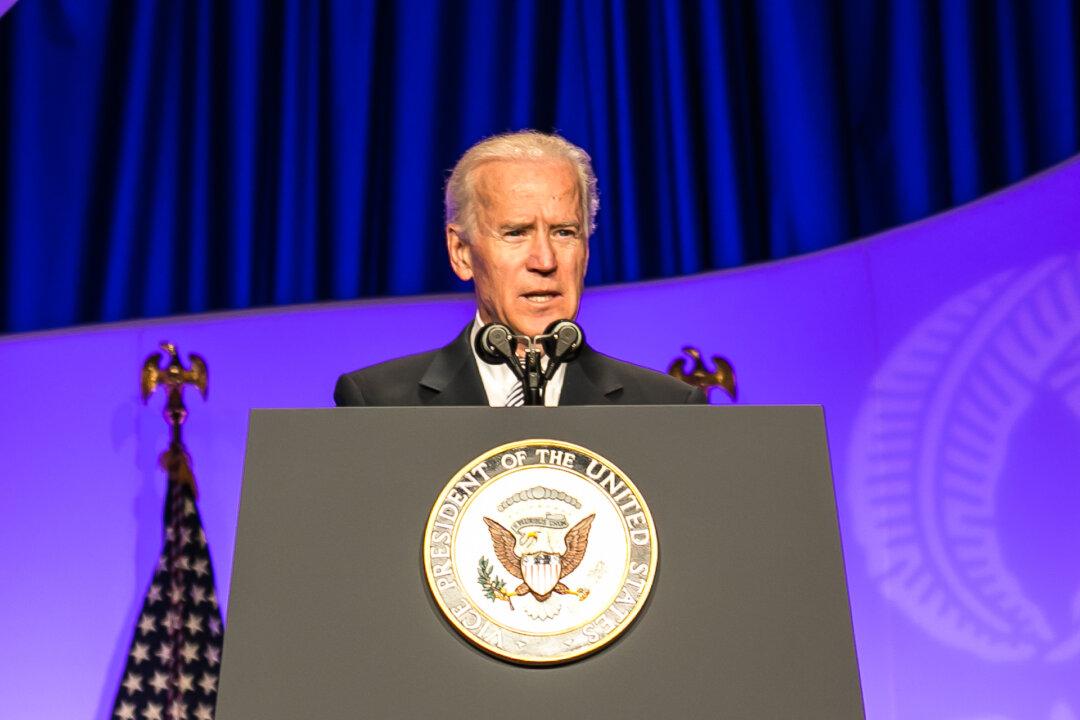WASHINGTON- As a Senate panel works its way through proposed amendments, hopes are rising that a comprehensive immigration bill will become a reality before the end of the year.
“We are rocking and rolling here,” said Sen. Patrick Leahy (D-Vt.), chairman of the Senate Judiciary Committee Tuesday. The panel had spent the day addressing around 50 of the more than 300 amendments that have been proposed to the Senate immigration bill.
“I don’t think the pathway to citizenship should be a false promise,” said Leahy in opening the session. He set the tone for business by calling on senators to refrain from “procedures” that would be “nothing but obstacles to that goal.”
The Senate committee included members of the bipartisan, so-called Gang of Eight that had proposed the bill, and the committee exhibited a similar spirit of cooperation.
In a bipartisan spirit, the panel rejected a number of amendments including a proposal by Sen. Jeff Sessions (R-Ala.) for a biometric identification system at points of entry and exit.
Other amendments were embraced, including a proposal by ranking member Sen. Charles Grassley (R-Iowa) to monitor more fully foreign students, a result of concerns following the Boston Marathon bombings.
The measure will require the Department of Homeland Security to ensure border control agents are informed of student visa details at ports of entry. Acquaintances of the accused Boston bombers were reportedly living in the U.S. on expired student visas.
Sen. Charles Schumer (D-N.Y.) one of the authors of the bill, welcomed the amendment, saying it would “plug a loophole” identified by the Boston bombings and “strengthen the bill in terms of dealing with terrorism.”
Bill Approval
Hopes that a comprehensive immigration bill will be passed have been rising despite concerns the bill could be derailed over border security.
“I am absolutely confident that if we stay with it, we are going to be able to get immigration reform done this year.” President Obama said at a Democratic Party fundraiser in New York Monday.
Vice President Joe Biden set the bar higher saying he hopes the bill will be in place by the beginning of fall.
“As my grandpop would say, with the grace of God and the goodwill of the neighbors, Congress will show the wisdom to pass the bipartisan immigration bill by the end of the summer,” Biden said at an annual gala for the Asian Pacific American Institute for Congressional Studies (APAICS) May 8.
“They must. I’m optimistic,” Biden said.
Amendments
Sen. Session’s amendment for more biometric data, which involves measures like finger prints and iris detection, was not passed but raised concerns about identification.
“This is a big, big hole in the system and it’s gone on for years and years,” Sessions said noting that the U.S. Government had requested biometric data be introduced for identification as far back as 1996.
He noted that visa overstays accounted for 40 percent of the illegal immigrant population.
Sen. Schumer and Sen. Richard Durbin (D-Ill.), both members of the ‘Gang of Eight,’ agreed tracking overstays was a problem, but said biometric data had been shown to be too expensive and too difficult to implement.
Schumer quoted a figure of up to $25 billion to implement, and Durbin described the photo identification system proposed in the bill as “a strong alternative.”
The biggest divide during the hearing came, not along partisan lines, but over the number of high tech visas allowed for foreign workers.
Sen. Orrin Hatch (R-Utah) and Sen. Ted Cruz (R-Texas) believed more visas should be made available to service the technology industry and to encourage growth.
While the bill increases the number of visas from a current 65,000 to 110,000 with provisions of up to 180,000 during high industry demand, Cruz said he would like to see the number up to 320,000.
“I am a full-throated advocate of legal immigration,“ he said.
On the other side of the argument, Sen. Session and Sen Grassley raised concerns that Americans would be overlooked by companies wanting foreign workers. Sessions proposed an amendment to reduce new legal immigration programs, but it was defeated.
Sessions predicted that once the 11 million illegal immigrants were approved under the new immigration law, and the backlog of immigrants already in line were processed, the influx of workers would flood the jobs market at a time when jobs were in decline.
“The job situation is not good and it is projected to not be good,” he said.
Proponents of greater legal immigration argued that high tech companies were already complaining that they could not fill job vacancies. They predicted that an estimated 80 million retiring baby boomers would leave the job market wide open.
Sen. Durbin said the bill had been crafted to ensure Americans were considered first for jobs, but had also taken into account increasing demand from industry for low and high tech workers.
“What we tried to do was balance competing interests,” he said.




